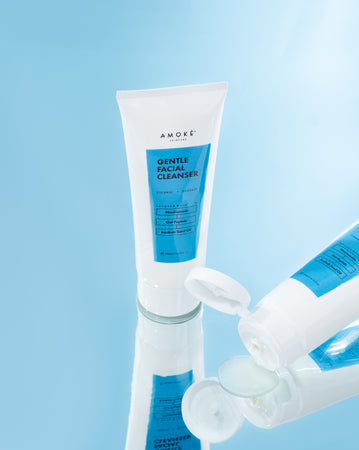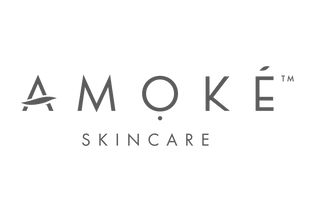What Type of Acne do You Have?

There are so many terms used to describe acne. From breakouts to pimples to spots to the technical terms; open comedones, closed comedones, pustules and cysts. If we really wanted to get really technical, there's acne conglobata, pyoderma faciale, acne venenata and acne tropicalis. Read on to decipher what you have and how to treat it.
Let's categorise acne into non-inflamed and inflamed to begin with. The non-inflamed is milder, being open and closed comedones (blackheads and whiteheads to the lay person) whilst inflamed acne is going to be a higher grade (3 or 4) and more severe.
How do I recognise non-inflamed acne?
Whiteheads (or closed comedones) are just what they sound like; small raised blemishes on the skin that have a white head. Whilst blackheads (or open comedones) look like dark brown to black dots. Comedones form when a hair follicle becomes clogged with dirt, sebum or dead skin. These collect in the opening of the follicle called a pore and produces a raised lesion (a bump). If the skin that covers the pump remains closed it is a whitehead/closed comedones. However, if the bump opens and is exposed to air, it becomes oxidised and begins to look brown/black hence the term blackhead/open comedone.


What ingredients to go for to treat non-inflamed acne?
Salicylic Acid - very helpful in exfoliating into the pores to clear blockages.
Niacinamide - helps in regulating sebum production and evening of complexion.
Zinc - healing and drying of sebaceous activity.
Allantoin - soothing and anti-inflammatory properties.
What Amoke Skincare treatments to go for?
Signature Facial - the ideal manual facial with a kick that helps to decongest and exfoliate.
Blemish Rescue - a deeper facial targeted at acne from tools to products.
How do I recognise inflamed acne?
Grade 3 acne will feature papules and pustules. Papules tend to be small but raised with a small imprint in the middle. They form from excess oil, bacteria and dead skin cells clogging the pores. They are not visibly infected with pus. If a papule becomes larger and painful, it has likely graduated to a nodule, which will also be felt under the surface of the skin. When a papule becomes infected with pus (which tends to take a few days) it has become a pustule.


What ingredients to go for to treat inflamed acne?
Salicylic Acid - to exfoliate deep into the pores.
Benzoyl Peroxide - to help in killing acne causing bacteria and unclogs the pores. It not only treats existing acne but helps to prevent new lesions. It works very well when used in conjunction with antibiotics.
Tretinoin - unclogs blocked pores, increases cell turnover and works very well in conjunction with antibiotics.
Sulphur - dries up sebaceous activity.
What Amoke Skincare treatments treat acne?
Blemish Rescue as a maintenance advanced facial.
Blemish Peel - targeted advanced BHA chemical peel to exfoliate deep into the pores and keep acne at bay.
Acne is not a condition that simply goes away, its something we manage in-clinic and at home. We hope to get to the point where clients are informed enough about their own skin and skincare in general to recognise the onset of a breakout, the potential triggers and aggravators and are equipped with tools to manage it.
if you suffer from acne, the following Amoke Skincare products are ideal for you; Anti-Acne Cleansing Bar, Clarifying Tonic, Pore Refining Serum and Even Tone Facial Moisturiser.
Continue reading
Comments



